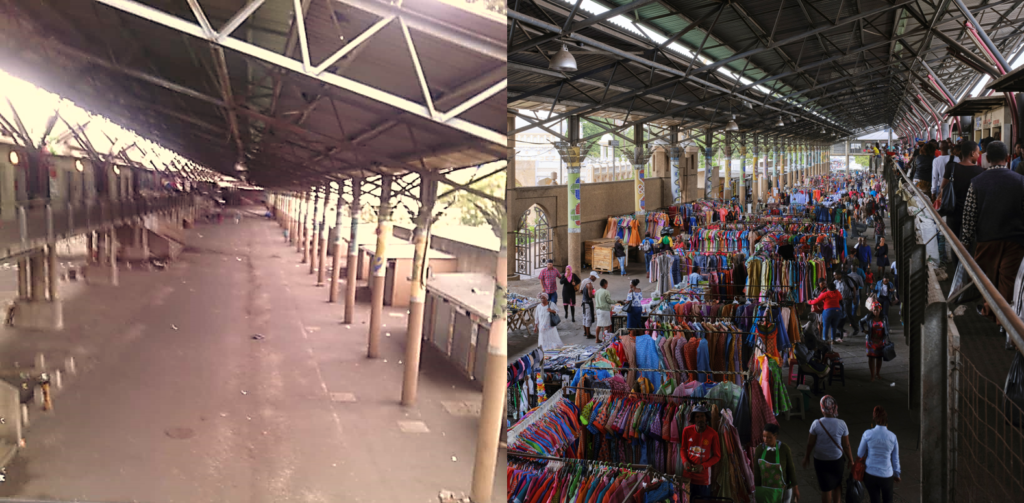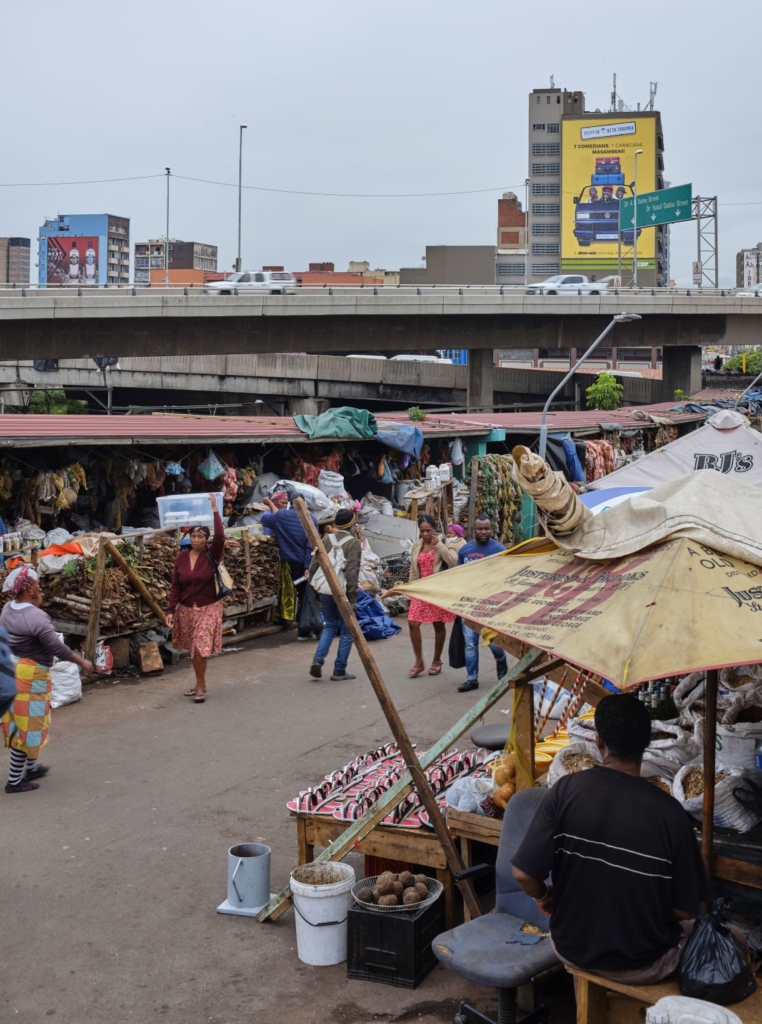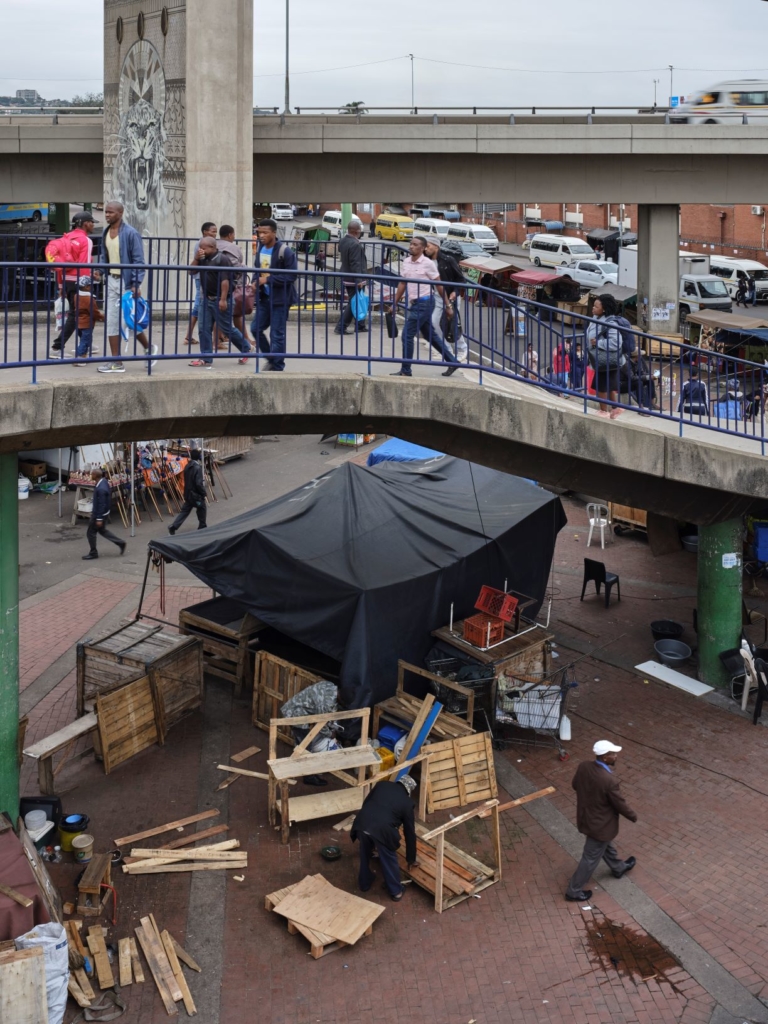Although the current pandemic has impacted almost every corner of the world and highlighted our collective vulnerabilities, it has not levelled any playing fields, but rather has drastically heightened inequalities.
For the majority of South Africa’s informal workforce, their most immediate concern is where the money for their next meal is going to come from. The COVID-19 pandemic has ravaged the incomes of informal workers, which in many cases were already only enough for them to just get by. Although informal workers are well aware of the dangers of contracting the coronavirus, the reality on the ground is that when people are forced to choose between earning money to put food on their tables, or not working in order to avoid the virus (or because they have COVID-19), there isn’t much time spent making the decision.
Over the past few months, members of the AeT team have interviewed 180 informal workers across three different sectors (street vending, market trading and informal recycling) in order to better understand the impacts of the COVID-19 pandemic on their lives. A deep understanding of the problems that informal workers are experiencing is the only way to develop adequate solutions.

From the research, it is clear that informal workers are suffering in multiple ways, however, their greatest challenge is very clearly financial in nature. There are a number of reasons for their dramatic decline in income. During higher lockdown levels informal workers were prohibited from working; food traders went almost a week without being able to trade and other traders, as well as informal recyclers, were unable to work for up to 2 months.
Even though most of the economy has been open since June, there is a lot less money being spent because of the large number of job losses incurred across most sectors; this is having a trickle-down effect. Some traders are unable to make half of what they were earning pre-pandemic and any savings that they may have had for purchasing stock to start trading again has by and large been spent on survival during the period when they couldn’t trade.
Informal recyclers have been dealing with a scarcity of recyclable materials, particularly due to the closure of liquor outlets. Furthermore, the public perception towards informal recyclers seems to have taken a more hostile turn and they are being barred from collecting recyclable materials from certain places. The money that companies are willing to pay for recyclable materials has also decreased.
Another major issue that informal workers are facing is lack of water, sanitation and hygiene (WASH) facilities as well as a lack of access to personal protective equipment (PPE). In many cases a lack of running water is their reality in both their home and work environments. In Warwick Junction, some of the public lavatories have been closed, taking away running water from workers and forcing them to purchase it elsewhere. The exorbitant price of sanitizer makes it unaffordable for informal workers.
The closure of childcare facilities and schools puts enormous pressure on caregivers, who are usually mothers or grandmothers, which makes the issue a gendered one. Having to juggle work and childcare with limited external support is highly stressful and is likely to have negative health implications.
Difficulties in accessing permits to conduct informal work activities were prevalent amongst the interviewees; “I could not get permission to travel to work during lockdown… although our sector was declared essential, but no official was prepared to issue us covid19 permits.” For informal recyclers, police harassment and exploitation were two other very prominent challenges and for informal traders the loss of stock due to being unable to sell at the beginning of lockdown, as well as theft due to the lack of security at the storage spaces, were major setbacks.
Informal workers are often labelled as resilient and innovative and while this is true, it is also a potentially harmful perspective as it allows the government to abdicate responsibility for the informal economy and its workforce and results in the public’s ambivalence to the plight of informal workers. COVID-19 is causing a great amount of suffering. Informal workers cannot be expected to stay home if that means they will forfeit their income, and it is impossible for them to practice good hygiene if they do not have access to the most basic sanitation services. The informal economy is not only a provider of millions of jobs and essential goods and services, but because informal workplaces are often situated at major transport hubs, they also act as conduits between all different sectors of society. If South Africa as a whole is going to overcome this pandemic, the informal economy needs to be acknowledged and supported. Without proper government and community intervention, and a move away from the repressive measures which are currently in place, the future looks bleak and the ‘new normal’ could end up being worse than the old.
[Feature image: Early Morning Market, Warwick Junction. Photo: Dennis Gilbert by permission Asiye eTafuleni]






